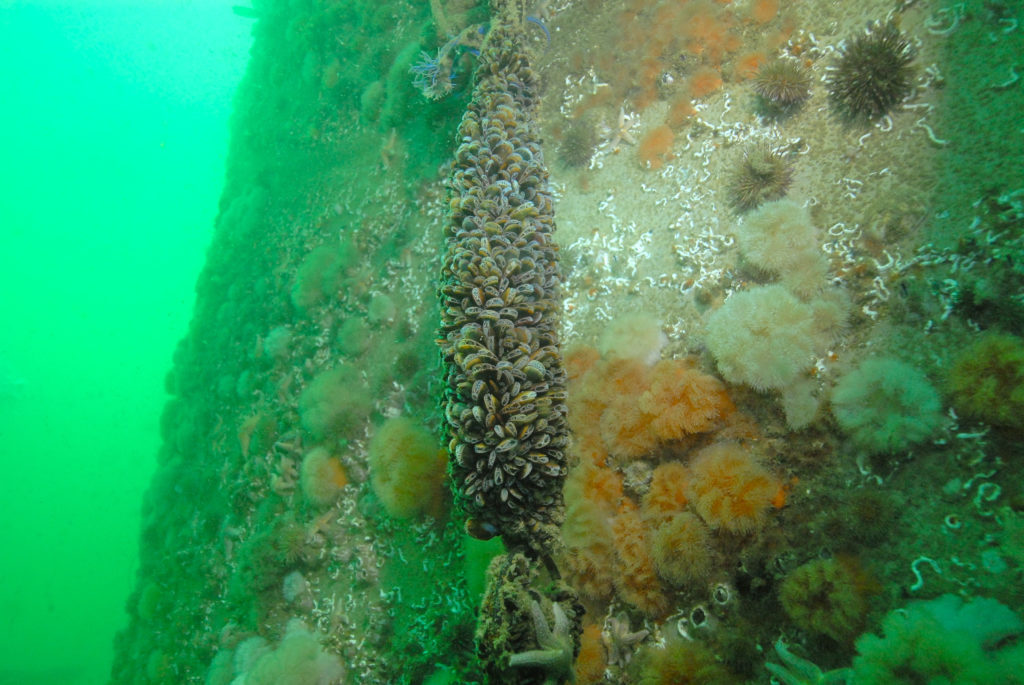
No one knows what consequences the removal of North Sea infrastructure will have on marine life, a decommissioning project director has said.
Richard Heard, who is heading up a science project to lift the lid on the deep-water situation around North Sea rigs, said “no one knows” whether the right decision are being made, at present.
Mr Heard is programme director of INSITE (Influence of Structures In The Ecosystem), which is undertaking a large study into the influence of man-made structures in the North Sea.
Phase One managed to garner £2.4 million of funding from industry partners such as BP, Centrica, CNR International, ExxonMobil, Marathon Oil, Shell, Talisman-Sinopec (now Repsol Sinopec), and Total.
Mr Head said: “We’re looking at the effects of these structures in the grand scheme of the North Sea and how have they influenced the ecosystem.
“And when I’m talking about infrastructure, I mean oil and gas infrastructure, renewable infrastructure and wrecks. Do they form some kind of interconnected reef system?”
“We’re not a decommissioning project, that’s important to mention. We’re not a company. What we are is a science project.
“We are about adducting independent science for others to use in their deliberations regarding decommissioning or any other introduction or removal of manmade structures within the North Sea.”
During 2011 and 2012, Oil and Gas UK (OGUK) led the “Decommissioning Baseline Study” joint industry project (JIP) to gather knowledge and experience in the decommissioning of offshore structures and pipelines.
In 2012, regulators felt they were not ready to make decisions on decommissioning due to a lack of solid science, provoking the need for the biggest study to date.
The JIP found that gaps existed in the data set used to describe the influence of man-made structures on the North Sea ecosystem.
In 2013, OGUK facilitated the creation of a scientifically-led, long-term environmental JIP aimed at improving scientific knowledge across all aspects of the ecosystem.
A year later, the eight aforementioned oil firms signed the JIP agreement, and INSITE was born.
Mr Heard said: “What we did between 2012 and 2014 was develop a governance model that was unique to industry and was designed to ensure that everyone could accept that the science that was produced came from independent scientists.
“At the moment, no one really has the science to know whether the decisions that people make are the right decisions. Or more specifically, what is the effect of that decision being taken?”
At the end of the second phase, scientists, industry and regulators will come together to decide how best to move forward with North Sea decommissioning.
Mr Heard said: “What we need to acknowledge is that this is a completely different model for industry to fund research and it’s come about because they recognise that the conversations about decommissioning are stakeholder-wide and everyone needs to understand what’s going on.
“I think industry realised that we need to have an informed discussion about this and to their huge credit an arms-length, innovative model has been created.”